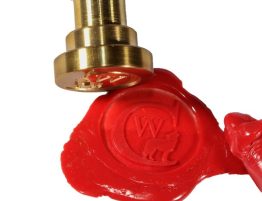
Since some time ago, China has been fighting a war against abuses in IPR protection by means of bad faith in IPR applications or evidence.
Chinese government issued amendments both to Trademark and Patent laws to ensure Chinese IPR law system is well-equipped against bad faith declarations, applications, and evidence.
Trademark Law
On 2019, the Chinese Trademark Law has been amended by introducing several provisions on good-faith relevance within TM application for registration and protection: according to article no. 4, “The malicious trademark registration application not for the purpose of use shall be rejected”. Furthermore, a new article 7.1 has been added by stating that “The principle of good faith shall be upheld in the application for trademark registration and in the use of trademarks”. Then, article 44 states now that “A registered trademark shall be declared invalid by the Trademark Office if it is in violation of Article 4, Article 10, Article 11, Article 12 or Paragraph 4 of Article 19 of this Law, or its registration is obtained by deceptive or other improper means”.
Patent Law
The last 2020 reform of Chinese Patent Law enforced the role of the good faith significantly, too. During the last reform of Chinese Patent Law, it has expressly stated in article 20 that “Application for patents and exercise of patents shall follow the principle of good faith. Abuse of patents to harm public interests or the legitimate rights and interests of others shall be prohibited”. Apart any abuse leading to competition restraining or monopoly – which shall be handled according to relevant provisions of Anti-monopoly Law – the Patent Law wants to fight against the abuse of right as intrinsic disvalue, to punish those subjects that by means of bad faith in IP applications cause harm to others’ legitimate interests and rights.
Civil Code of the P.R. of China
Provisions on relevance of good faith in enforcement of rights and interest are part of general provisions of Chinese Civil Law System: article no. 132 of Civil Code of P.R. of China, in force since January 1st, 2021, states that “Civil subjects shall not abuse civil rights to damage national interest, social and public interest or the legitimate rights and interests of others”.
“Blue Sky” corrective actions against bad faith behaviors in IPR applications, filing and evidence
On March 2021, CNIPA – China National Intellectual Property Administration launched several initiatives on this field: a program named “Blue Sky” has been launched to make corrective actions aiming to create a better environment of intellectual property, especially focused on IP agencies and collection of evidence for supporting IP applications.
Local governments have been involved to support this initiative, such as (i) speed up suppression of patent application agency behavior that is not intended to protect innovation, (ii) crack down on malicious trademark application agency acts that are not for use purposes, (iii) continue to crack down on unqualified patent agent behavior, (iv) strengthen the guidance and norms of platform-based intellectual property service institutions, (v) crack down on forgery and alteration of the seal of legal documents, (vi) strengthen the interface with day-to-day supervision and long-term mechanism, (vii) give full play to the role of industry organizations and social supervision, and (viii) strengthen organizational safeguards and implement regulatory responsibilities.
November 30th, 2021, is the last day for reporting the performed actions on these topics. It is expected that, thanks both to the legislative reforms and the campaign launched by CNIPA, bad-faith behaviors will be tackled with proper means to be stopped and punished.
Judicial Administrative Practices
Chinese Courts have been starting to implement and enforce the new legal environment by protecting harmed parties against bad-faith behaviors committed against them.
In 2019, upon the enforcement of the new Trademark Law, Beijing High People’s Court issued a Guideline for the Trial of Trademark Right Granting and Verification Cases, by specifying what shall be meant, respectively, as “lack of good faith” and “other improper means” according to relevant provisions of articles no. 4 and 44 of Trademark Law.
In the common practice, both in opposition towards CNIPA or in judicial case against CNIPA refusal, evidence like level of fame previously obtained by concerned TM, together with the similarity (or identity) of the two TMs (registered by the opposed party; used by the alleged damaged party), is deemed enough to furnish the proof of “lack of good faith” in the registration procedure. Similarly, with reference to “improper means” used to obtain the registration, hoarding by registering dozens of famous and high-reputation TMs, especially where the registrant cannot prove the actual use of these TM, can be deemed ad proof of “bad-faith”, as well as “improper means” as per article 44 of the TM Law.
In Patent field, the same approach is followed by Courts, for instance with reference to unreasonable assertions in Patent claims. Where the claim is obvious and well-known, and the harmed party furnishes the proof of that, the lack of innovation may lead to a statement of “lack of good faith” which is the ground to declare a Patent “invalid” as per article 20 of the Patent Law.








